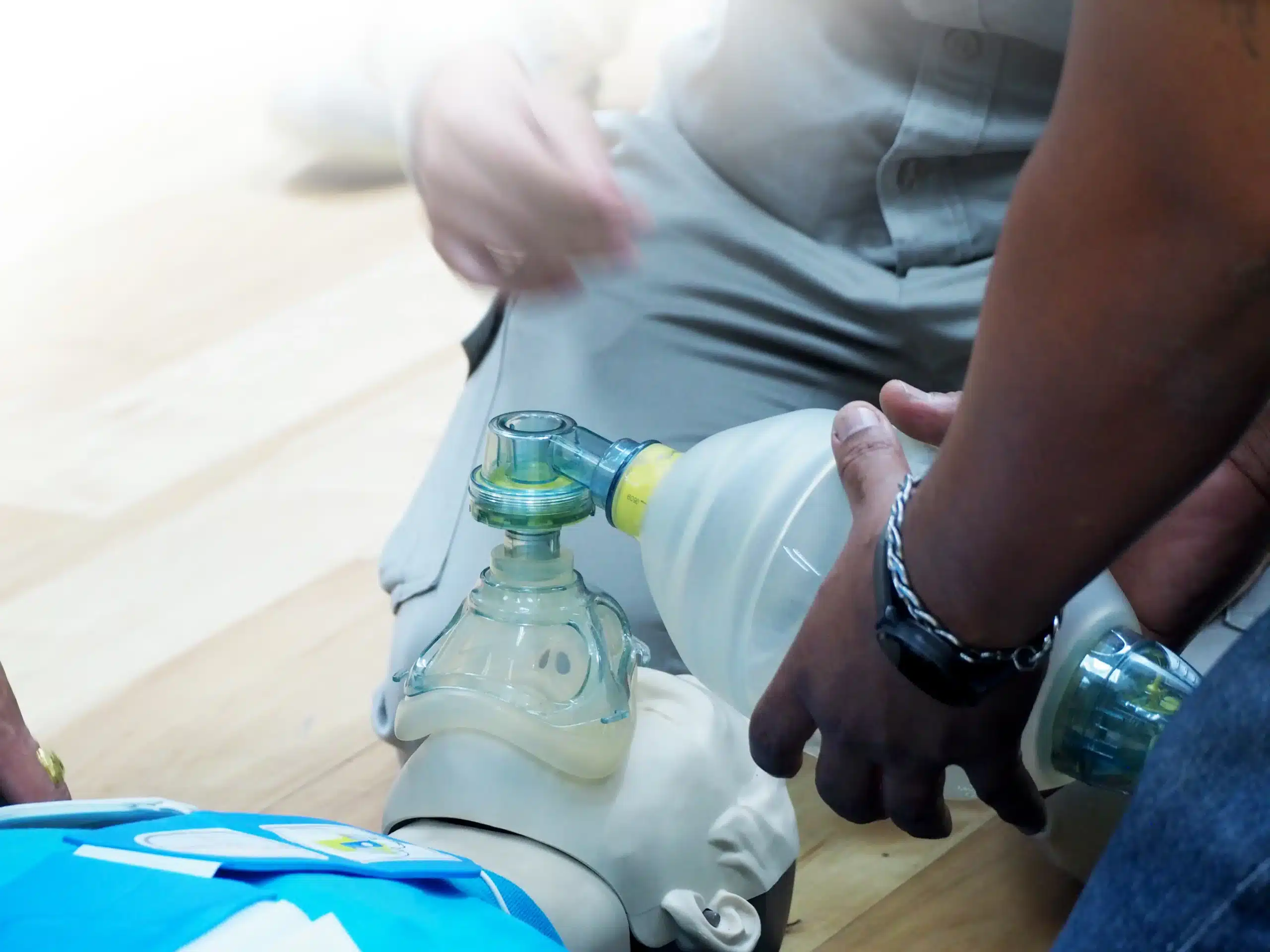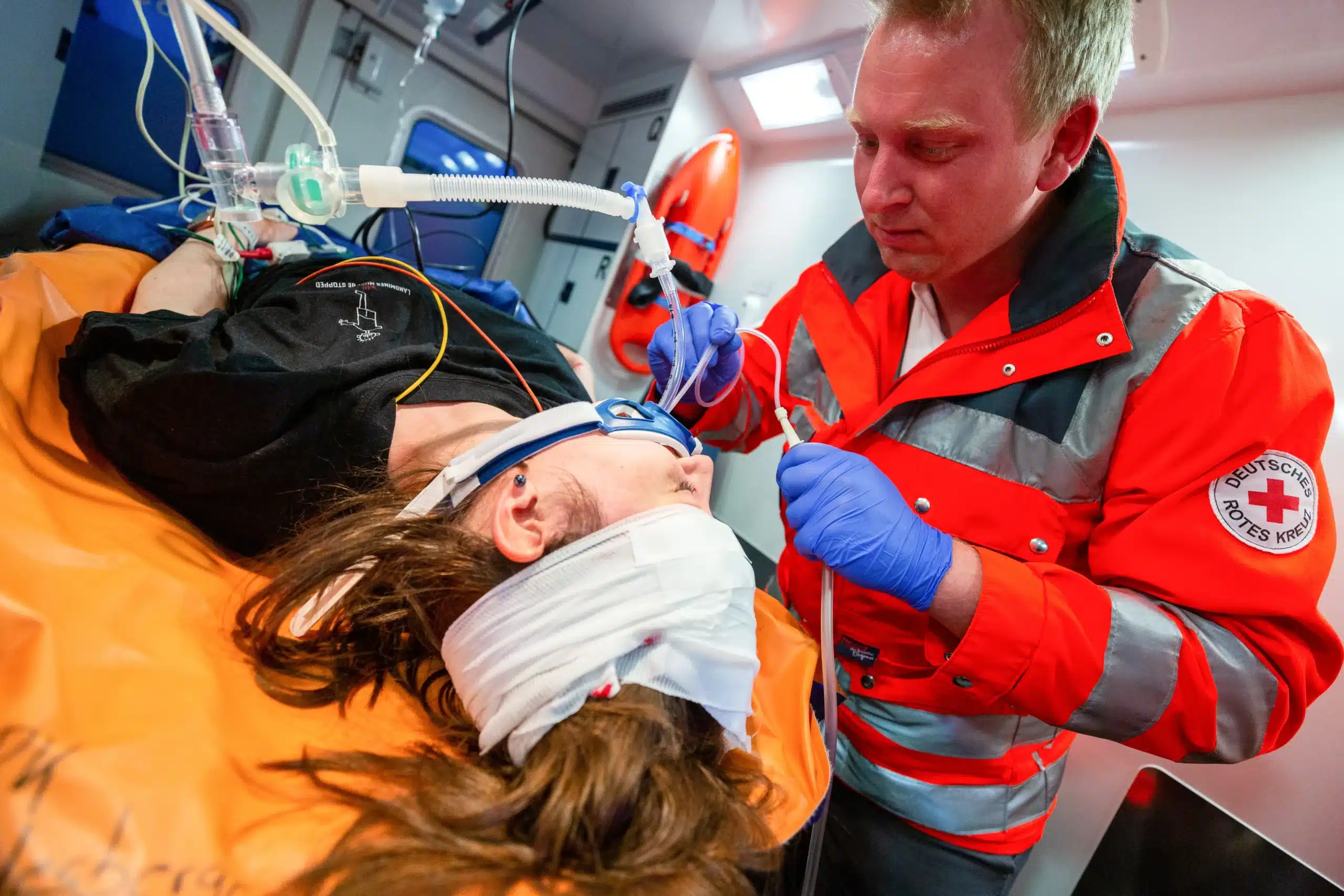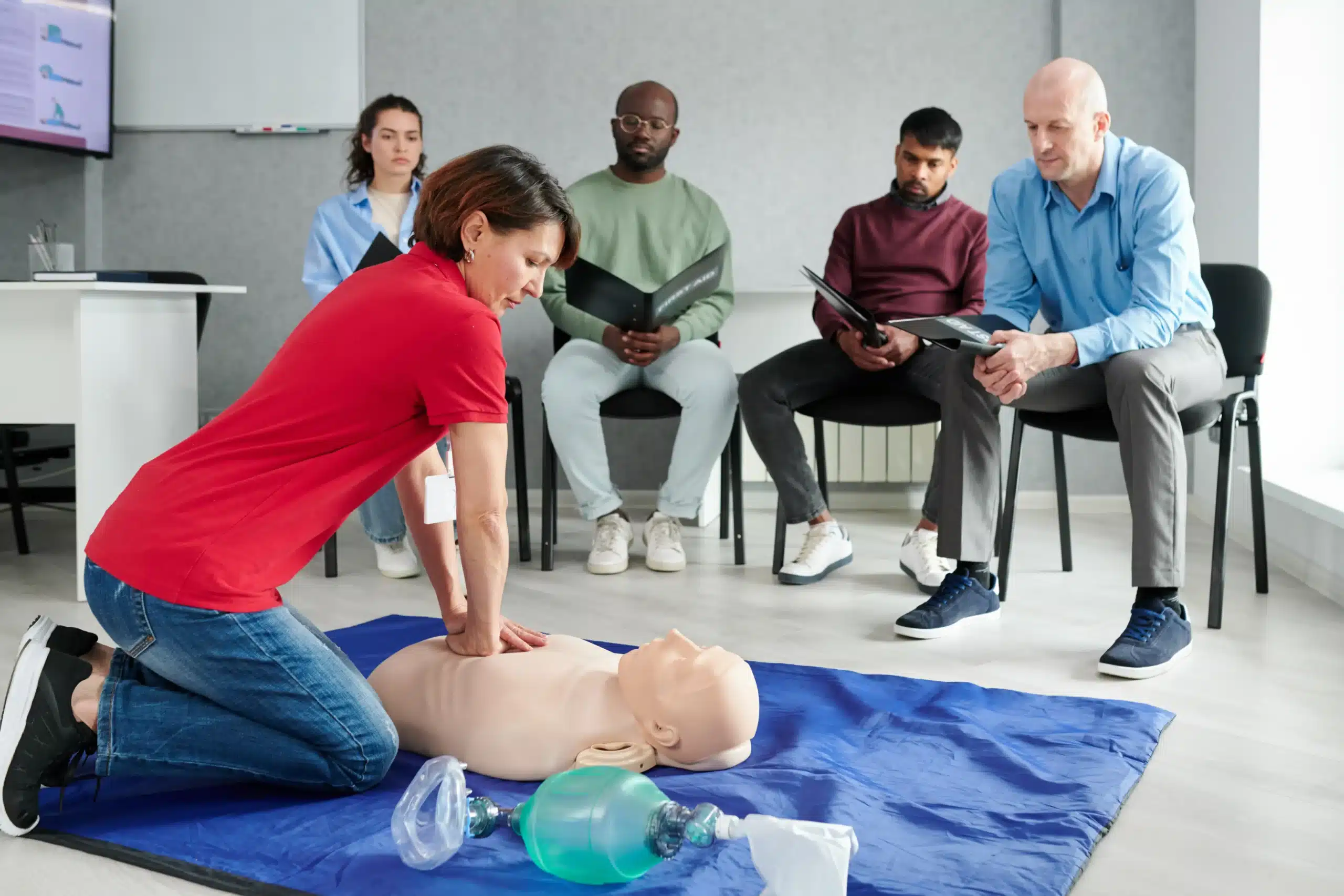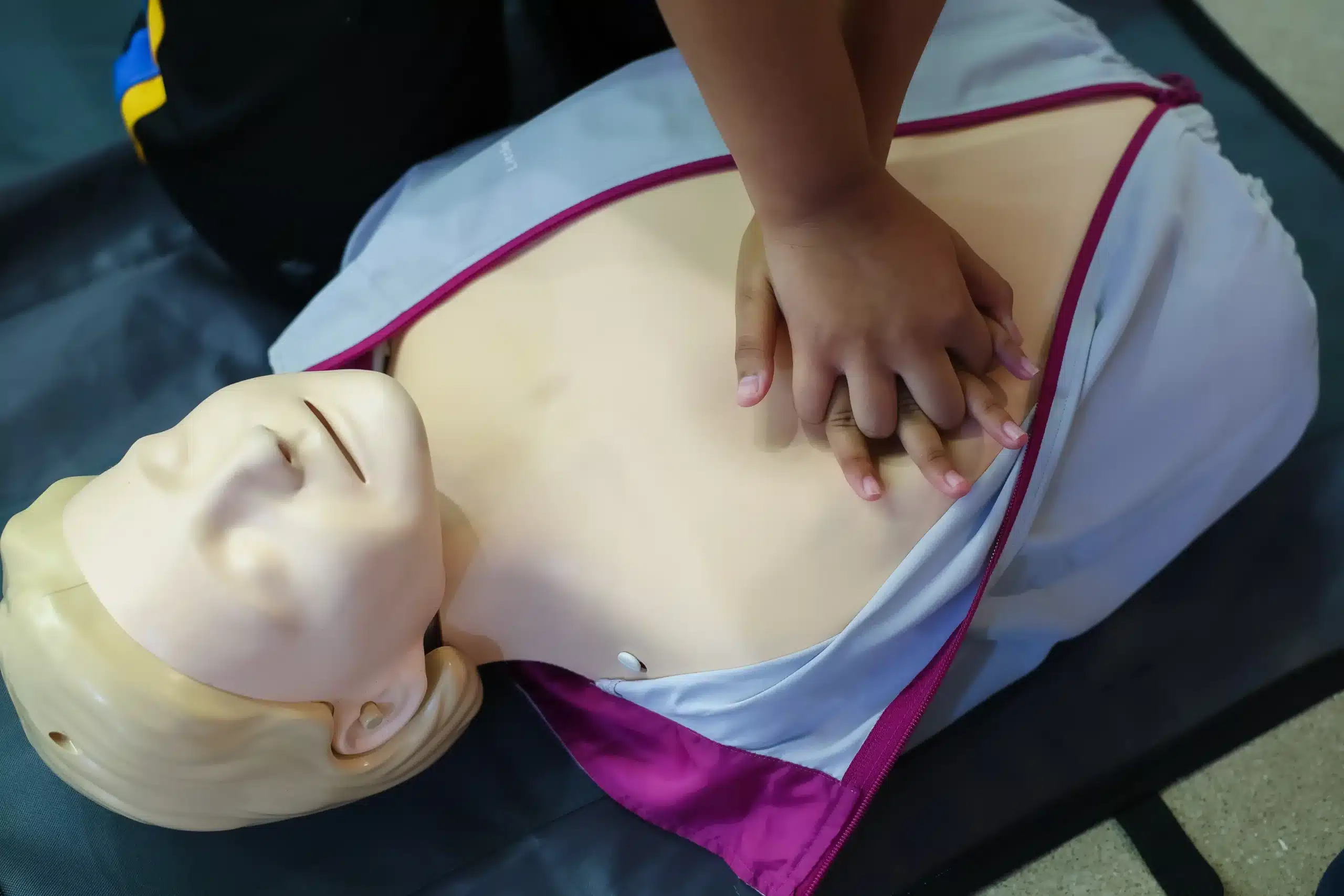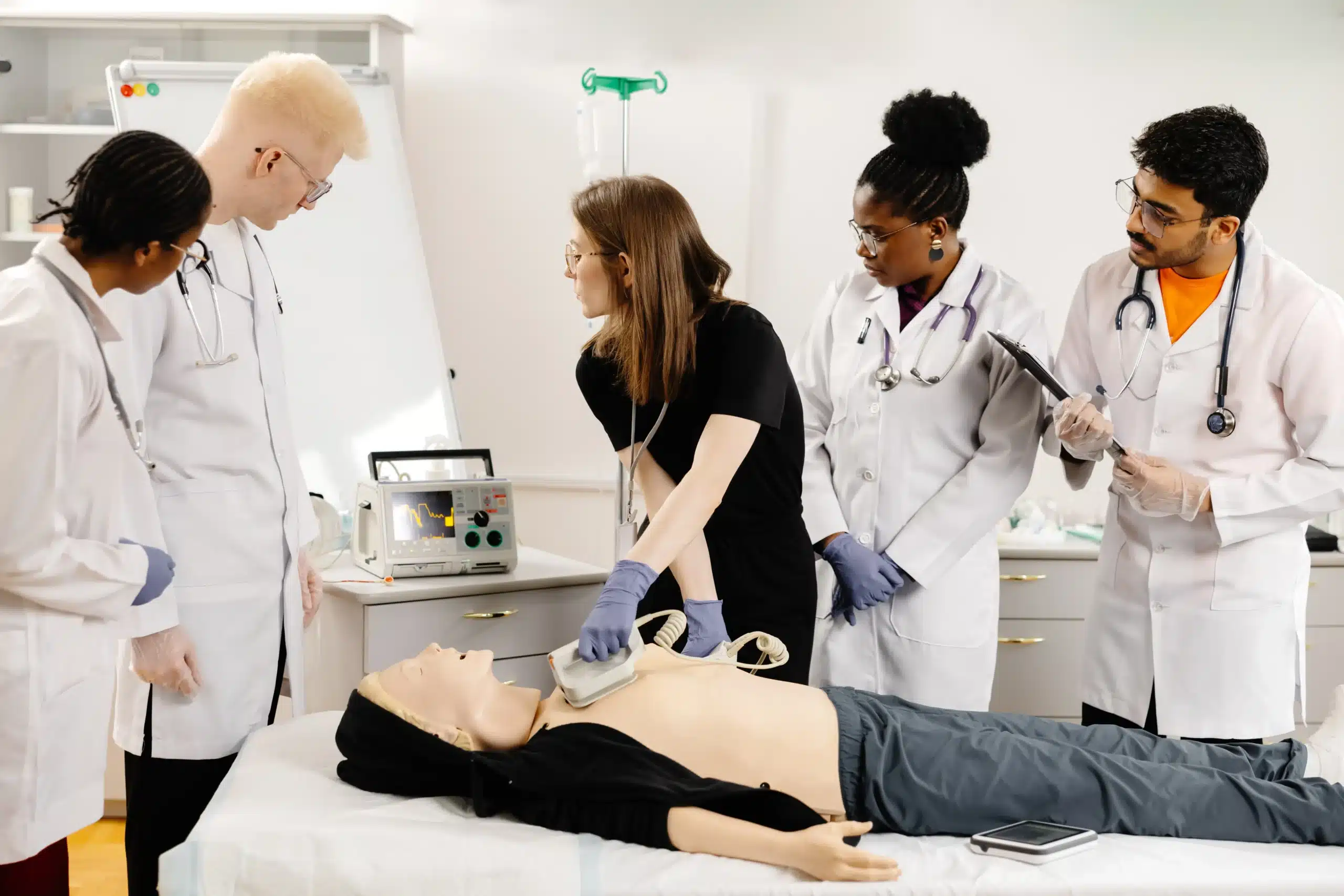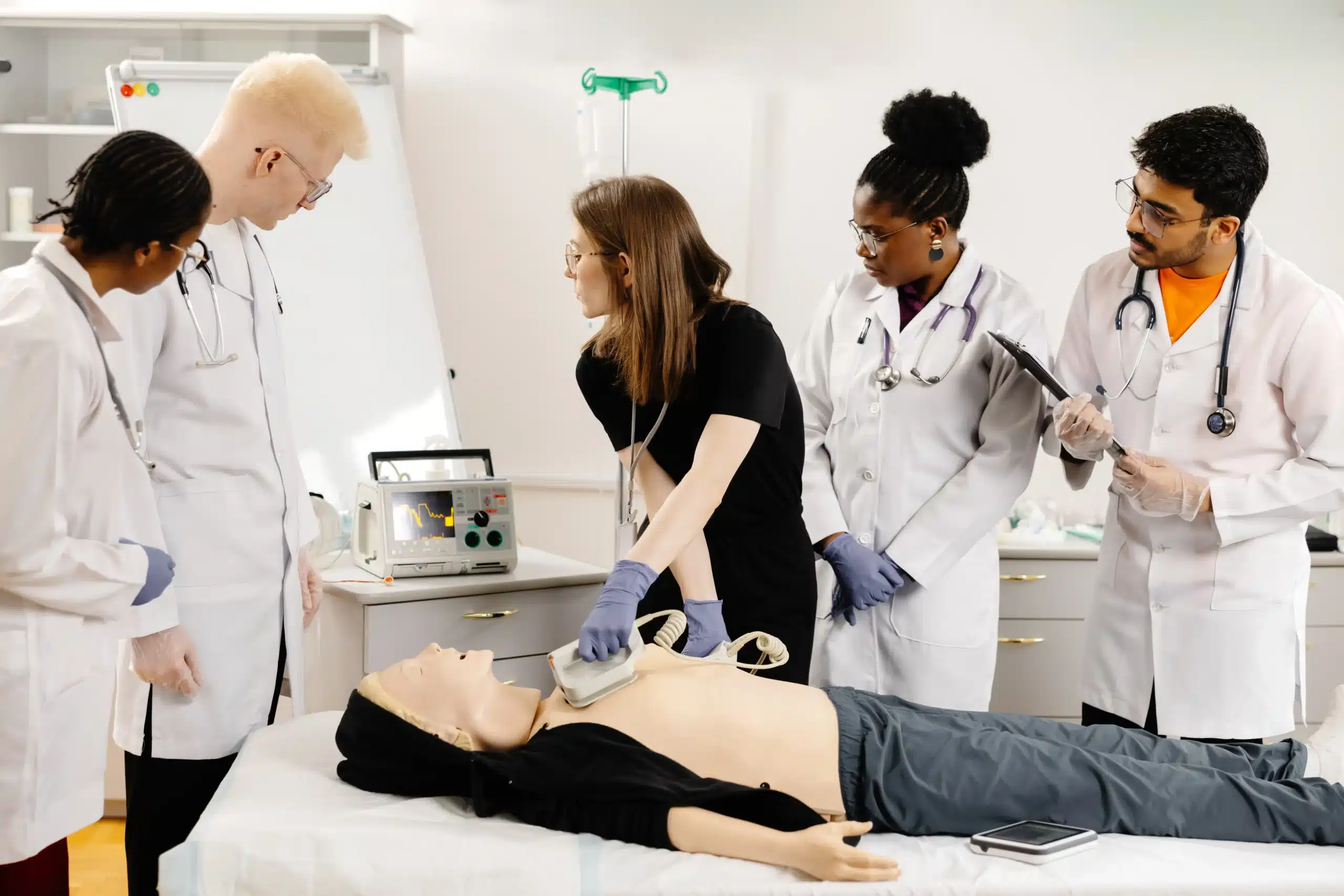Cardiac emergencies demand swift, decisive action, and healthcare providers equipped with Advanced Cardiac Life Support (ACLS) training are best prepared to respond effectively. If you’re in Dixon and looking to enhance your emergency response skills, this article is your comprehensive guide to advanced cardiac life support in Dixon. We’ll break down the core elements of ACLS, from essential algorithms to advanced life-saving techniques. We’ll also explore the certification process, the benefits of ACLS for your career, and how to find the right training program in Dixon to fit your needs. Join us as we delve into the world of ACLS and empower you to become a more confident and skilled healthcare provider.
Key Takeaways
- ACLS equips you with advanced life-saving skills: Mastering these skills through a blend of online learning and hands-on practice ensures you’re prepared for any cardiovascular emergency. This translates to better patient outcomes and opens doors to career advancement.
- Finding the right ACLS course fits your needs and budget: Explore local and online options, considering factors like schedule, learning style, and cost. Look for group discounts or employer reimbursements to make training more affordable.
- Maintaining your ACLS skills is crucial for optimal patient care: Regularly review key concepts, participate in mock scenarios, and utilize online resources to stay sharp and confident in your abilities. Ongoing learning ensures you’re always prepared to provide the best possible care.
What is Advanced Cardiac Life Support (ACLS)?
Define ACLS and its purpose
Advanced Cardiac Life Support (ACLS) is a set of clinical algorithms and best practices for healthcare providers managing patients experiencing cardiac arrest or other severe cardiovascular emergencies. It goes beyond basic life support (BLS) with a greater focus on teamwork, systems of care, and high-performance resuscitation. ACLS emphasizes early recognition and intervention to improve patient outcomes. This specialized training equips medical professionals with the knowledge and skills to handle these critical situations effectively. Think of it as the next level of expertise for those dedicated to providing the best possible emergency cardiac care.
Explain the importance of ACLS
The importance of ACLS training cannot be overstated. In time-sensitive cardiac emergencies, healthcare providers must act decisively and skillfully. ACLS empowers them to do so, leading to improved patient survival rates and better neurological outcomes. The advanced skills and confidence gained through ACLS training translate directly to lives saved and a higher quality of care during critical moments. It’s an invaluable asset for any healthcare professional involved in emergency cardiac care, ensuring they are prepared to handle the complexities of these situations and ultimately make a real difference in patient care. For those working in healthcare, pursuing ACLS certification is not just a professional development step—it’s a commitment to providing the highest standard of care. You can find more information on the importance of ACLS training and its impact on patient care through resources like this article on emergency cardiac care.
Key Components of ACLS Training
ACLS training is a comprehensive program designed to equip healthcare professionals with the skills and knowledge to manage complex cardiovascular emergencies. It goes beyond basic life support, focusing on advanced interventions and effective team dynamics. Here’s a closer look at the key components:
Learn Essential Skills and Knowledge
ACLS courses cover a wide range of essential skills, from airway management and intravenous access to pharmacology and electrocardiogram (ECG) interpretation. You’ll learn how to recognize and treat life-threatening arrhythmias, such as bradycardia and tachycardia, and gain proficiency in administering medications and using advanced equipment. This foundational knowledge is crucial for effective patient care during cardiac emergencies.
Understand ACLS Algorithms
ACLS algorithms provide a structured approach to managing various cardiac arrest scenarios. These algorithms, or flowcharts, guide healthcare providers through a systematic process of assessment, intervention, and reassessment. Understanding these algorithms is essential for making quick, informed decisions under pressure. Accurate EKG interpretation and algorithm application are key, and recognizing common mistakes can significantly improve patient outcomes. At Vacaville CPR Classes, we emphasize algorithm comprehension and practical application through realistic simulations.
Improve Team Dynamics and Communication
Effective teamwork and clear communication are paramount in high-stakes medical situations. ACLS training emphasizes the importance of coordinated efforts within a resuscitation team. You’ll learn how to communicate effectively with other team members, delegate tasks, and maintain a calm and organized environment during a crisis. Overcoming common communication challenges during ACLS skills evaluations is a vital part of training, as teamwork is crucial for successful resuscitation. Our courses incorporate simulated scenarios to practice these essential team dynamics.
Get ACLS Certified in Dixon
Explore course structure and duration
ACLS certification courses equip medical professionals with the skills to manage cardiopulmonary arrest and other cardiovascular emergencies. These courses typically involve lectures, interactive discussions, demonstrations, and hands-on practice scenarios. Understanding the course structure helps you prepare for the training’s intensity and time commitment. Knowing the course duration—whether it’s a one- or two-day program—allows you to plan accordingly and balance your work schedule and personal commitments. ACLS training provides the expertise to manage acute cardiac conditions, ensuring you’re prepared to deliver the best possible care in critical situations. These skills are critical in saving lives and improving patient outcomes during cardiac emergencies.
Review certification requirements
Before enrolling in an ACLS course, review the certification requirements. These often include having a current healthcare provider CPR certification. Make sure you meet all the prerequisites to avoid any last-minute surprises. Maintaining your ACLS certification through regular recertification and continuing education is vital for any healthcare professional providing critical care. This ongoing commitment ensures your skills remain sharp and aligned with the latest guidelines.
Compare online vs. in-person training
Choosing between online and in-person ACLS training depends on your learning style and schedule. Online ACLS courses offer flexibility, allowing you to learn at your own pace. They provide a solid foundation in essential lifesaving skills and knowledge. However, in-person classes offer hands-on practice and direct interaction with instructors and peers. Both course options teach the same AHA science-based skills and result in the same AHA ACLS Course Completion Card. Consider your preferences and resources when making your decision. If you value face-to-face instruction and hands-on learning, in-person training might be a better fit. If you need a more flexible schedule, online learning could be ideal. Contact us at Vacaville CPR Classes to discuss your options and find the best fit for your needs.
Find ACLS Courses in Dixon
Finding the right ACLS course in Dixon depends on your learning style and schedule. Fortunately, there are several ways to get ACLS certified in the area.
Locate local training centers and hospitals
Many healthcare providers in Dixon offer comprehensive training courses, including ACLS. Safety Training Seminars offers a wide range of CPR, BLS, ACLS, PALS, and first-aid certification courses in the area. Local organizations like Simply CPR also provide training tailored to the Dixon community, ensuring your skills are relevant and practical for real-life emergencies. Check with hospitals and clinics in Dixon, as many offer ACLS courses for their staff and the public. Contacting these facilities directly or checking their websites for CPR classes is a good starting point.
Discover online providers
Online ACLS courses offer a flexible way to earn or renew your certification. These courses often cover the same material as in-person classes, including essential skills and knowledge for responding to cardiovascular emergencies. Online learning allows you to study at your own pace and fit the training around your schedule. Look for reputable online providers that offer ACLS certification recognized by your healthcare employer.
Find flexible scheduling options
Whether you choose in-person or online training, finding a course that works with your schedule is essential. Look for providers that offer weekend or evening classes, accelerated courses, or self-paced online options. If your employer requires ACLS certification, discuss your scheduling needs with them. They may offer on-site training or have recommendations for local providers with flexible scheduling. Being proactive about planning helps you avoid common certification and renewal challenges. Most healthcare facilities mandate CPR and ACLS certification as a condition of employment, so staying current is crucial.
Understand ACLS Certification Costs
Getting ACLS certified is an investment in your career and in better patient care, so it’s wise to understand the associated costs. Knowing what to expect upfront helps you budget effectively and choose the best training path.
Calculate course fees and expenses
ACLS certification involves two primary components: the online HeartCode ACLS portion and the required in-person skills session. The online portion typically costs around $144, providing foundational knowledge and practice. The hands-on skills session, where you’ll work with instructors and demonstrate your proficiency, usually adds another $100 or so. This brings the total for ACLS certification to approximately $244. Keep in mind that prices can vary slightly depending on the training provider and any supplemental materials required. For a more detailed breakdown, check out our ACLS HeartCode guide.
Compare in-person vs. online costs
While the blended learning approach (online coursework plus in-person skills) is standard for ACLS, it’s helpful to compare costs with other providers and formats. Some providers offer a fully in-person ACLS course, which might cost around $260 for a full course and potentially less for a renewal. Weighing the different formats helps you choose what best suits your learning style, schedule, and budget.
Explore financial support options
Don’t let cost be a barrier to advancing your skills. Many employers recognize the value of ACLS certification and offer financial assistance or reimbursement for professional development. Check with your HR department to see what resources are available. Also, if you’re coordinating training for a group, like your colleagues at a hospital or clinic, ask training centers about group discounts, which can significantly lower the per-person cost. These options can make ACLS training more accessible.
Benefits of ACLS Certification
Getting ACLS certified is a significant step for healthcare providers. It’s not just about adding another credential to your resume; it’s about tangible benefits that directly impact your patients, your career, and your overall confidence in critical situations.
Improve Patient Outcomes
ACLS training equips you with the skills to manage life-threatening cardiac emergencies. From recognizing the early signs of a heart attack to administering medications and performing advanced airway management, ACLS certification ensures you’re prepared to deliver the best possible care when seconds count. Studies show that ACLS-trained professionals contribute significantly to improved patient outcomes and survival rates during cardiac events. The ability to react swiftly and effectively can make all the difference.
Advance Your Career
In the competitive healthcare landscape, ACLS certification is often a prerequisite for many roles and can create opportunities for career growth. It demonstrates your commitment to providing high-quality patient care and signifies a deeper understanding of critical care principles. Many healthcare facilities require ACLS certification as a condition of employment, making it essential for career advancement. Regular recertification ensures your skills remain sharp and aligned with the latest guidelines.
Build Confidence in Emergencies
Beyond the technical skills, ACLS training instills a sense of confidence and composure in high-pressure situations. Through realistic simulations and hands-on practice, you’ll develop the ability to assess situations quickly, make critical decisions, and lead a team effectively. ACLS training scenarios allow you to practice essential skills like prioritizing interventions, assigning tasks, and communicating clearly with your team, ultimately leading to better patient outcomes and a stronger sense of preparedness in any emergency.
Overcome ACLS Training Challenges
Let’s be honest, ACLS training and certification can feel intense. Between juggling work, family, and other commitments, finding the time to study and prepare can be a real challenge. But don’t worry, you’ve got this! With a little planning and the right strategies, you can overcome these hurdles and succeed in your ACLS training. Vacaville CPR Classes is here to support you every step of the way. Contact us today to learn more about our ACLS training programs and how we can help you achieve your certification goals.
Manage Time Effectively
One of the biggest obstacles healthcare professionals face is time management. Successfully completing ACLS training requires dedicated study time. Create a realistic study schedule that fits your lifestyle. Break down the material into smaller, manageable chunks, and set aside specific times each day or week for review. Even short, focused study sessions are more effective than cramming. Think about using a planner, calendar alerts, or a study app to stay organized and track your progress. Prioritize your study time just as you would any other important appointment. If you need help creating a study plan, reach out to a colleague or mentor who has already been through ACLS training—they can offer valuable advice and support.
Stay Updated on Guidelines
ACLS guidelines are constantly evolving to reflect the latest research and best practices in cardiac care. Staying current with these updates is crucial for providing the highest quality patient care. Refer to the most recent American Heart Association guidelines for the most up-to-date information. Many online resources and apps offer concise summaries and updates, making it easier to stay informed even with a busy schedule.
Manage Exam Anxiety
It’s perfectly normal to feel some anxiety about the ACLS exam, but excessive stress can hinder your performance. Remember, the purpose of the exam is to assess your knowledge and skills. Prepare thoroughly by reviewing the material, practicing scenarios, and familiarizing yourself with the exam format. Practice tests can be incredibly helpful for identifying areas where you need more focus and building your confidence. If you find yourself struggling with test anxiety, consider relaxation techniques like deep breathing or mindfulness exercises. Remember, you’ve put in the work, and you’re prepared. Trust your training and focus on applying what you’ve learned. If you need additional support, don’t hesitate to reach out to your instructor or a mentor for guidance.
Prepare for ACLS Certification
Getting ready for your ACLS certification takes more than just enrolling in a course. A little prep work makes a big difference, so let’s look at how to get the most out of your training.
Access study tips and resources
Online ACLS (Advanced Cardiovascular Life Support) classes offer a flexible way to earn or renew your ACLS certification. Take advantage of the online resources and study materials available. Many providers offer practice tests and quick study guides to boost your confidence before the course. Look for resources that simplify complex algorithms into manageable steps. Recertification courses for BLS and ACLS are also available online, making it easier to stay current.
Know what to expect during training
ACLS training gives medical professionals the skills to manage acute cardiac conditions. Expect a mix of lectures, hands-on practice, and simulated scenarios. These scenarios mimic real-life emergencies, allowing you to apply your knowledge in a safe environment. Understanding the course structure beforehand will help you feel more prepared and allow you to focus during training.
Maintain skills with ongoing practice
Your ACLS certification is an important achievement, but maintaining those skills requires ongoing effort. Regularly review key algorithms and procedures. Consider participating in mock codes or simulations at your workplace to keep your skills sharp. Consistent practice, along with continuing education, ensures you’re ready to handle any cardiovascular emergency. Staying current with the latest guidelines is also essential for providing excellent patient care.
Explore Advanced Technology in ACLS
Technology plays a crucial role in modern ACLS, impacting how medical professionals assess, diagnose, and treat patients experiencing cardiovascular emergencies. Understanding and using these tools effectively is essential for providing optimal care.
Use Defibrillators and Monitors
Defibrillators and monitors are cornerstones of ACLS interventions. Defibrillators deliver electrical shocks to restore a normal heart rhythm during cardiac arrest. Modern defibrillators offer sophisticated features, including automated external defibrillators (AEDs) that guide users through the process. This makes them accessible even to those without extensive medical training. Advanced cardiac monitors provide real-time data on a patient’s heart rate, rhythm, blood pressure, and oxygen saturation. This data enables healthcare providers to make informed decisions quickly. Developing these ACLS skills is vital for managing cardiac arrest effectively.
Integrate Technology in Emergencies
Beyond defibrillators and monitors, ACLS incorporates various other technologies. Intravenous pumps deliver precise medication dosages, while advanced airway management tools, like video laryngoscopes, improve the success rate of intubation. Point-of-care ultrasound devices allow for rapid assessment of cardiac function and identification of potential complications. Integrating these technologies seamlessly into emergency response protocols enhances the effectiveness of ACLS interventions. ACLS training equips medical professionals with the expertise to manage these acute cardiac conditions. This ensures they are prepared to deliver the best possible care.
Access Local Support Systems
Accessing local support systems is crucial for effective ACLS implementation. This includes having well-defined protocols for activating emergency medical services (EMS) and coordinating care with receiving hospitals. Utilizing telehealth platforms can facilitate real-time consultations with specialists, particularly in areas with limited access to advanced cardiac care. For those seeking ACLS certification in Dixon, online courses offer a flexible way to develop these essential skills.
Maintain Your ACLS Certification
Staying current with your Advanced Cardiovascular Life Support (ACLS) skills isn’t just about meeting requirements—it’s about confidently facing any cardiovascular emergency. Regularly refreshing your knowledge and skills ensures you’re always prepared to provide the best possible patient care. Here’s how to stay sharp:
Refresh Skills Continuously
Your ACLS certification is valid for two years. To maintain your credentials, you’ll need to complete a renewal course before it expires. Even before your renewal is due, consider incorporating regular review into your routine. Quick refreshers on essential algorithms, pharmacology, and procedures can make a significant difference in your response time and effectiveness during a real emergency. Check out our low price guarantee for the best value on your recertification.
Participate in Mock Scenarios
Hands-on practice is crucial for solidifying your ACLS skills. Participating in mock codes and simulations creates a safe environment to apply your knowledge and refine your responses under pressure. These scenarios allow you to work through complex situations with your team, improving communication and coordination—essential elements of effective emergency response. For group discounts, explore our options for discount group classes.
Use Online Resources for Education
Online resources offer a convenient and flexible way to supplement your ACLS training. From quick refreshers to in-depth reviews, online platforms provide access to a wealth of information, including the latest guidelines and best practices. Online ACLS classes can also be a valuable tool for recertification, offering a flexible learning experience that fits your schedule. Consider exploring our available RQI classes for another convenient learning option.
Related Articles
- ACLS HeartCode in Dixon: Your Certification Guide – Vacaville CPR Classes
- Online ACLS Classes in Fairfield: Your Guide – Vacaville CPR Classes
- Online ACLS Classes in Dixon: Your Guide – Vacaville CPR Classes
- ACLS Renewal in Fairfield: Your Simple Guide – Vacaville CPR Classes
- ACLS HeartCode in Vacaville: Find Training Near You – Vacaville CPR Classes
Frequently Asked Questions
What’s the difference between BLS and ACLS?
BLS, or Basic Life Support, focuses on immediate life-saving techniques like CPR and using an AED. ACLS builds upon BLS, providing healthcare professionals with advanced knowledge and skills to manage complex cardiovascular emergencies, including cardiac arrest, stroke, and acute coronary syndromes. It involves more advanced interventions, medication administration, and team-based resuscitation strategies.
How often do I need to renew my ACLS certification?
ACLS certification is typically valid for two years. To maintain your credentials and stay up-to-date with the latest guidelines, you’ll need to complete a recertification course before your current certification expires. Regularly reviewing the material and participating in mock codes or simulations can help you stay sharp and prepared.
What if I don’t work in a hospital? Do I still need ACLS?
While ACLS is often associated with hospital settings, it’s valuable for any healthcare professional who might encounter cardiovascular emergencies. This includes professionals working in clinics, urgent care centers, or even private practices. The ability to recognize and manage these situations can significantly impact patient outcomes, regardless of the setting.
Are online ACLS courses as effective as in-person classes?
Both online and in-person ACLS courses cover the same core material and lead to the same certification. Online courses offer flexibility for those with busy schedules, while in-person classes provide more opportunities for hands-on practice and direct interaction with instructors. The best choice depends on your learning style and preferences. Both formats typically involve a required in-person skills session.
How can I fit ACLS training into my already busy schedule?
We understand that healthcare professionals often have demanding schedules. Look for ACLS training providers that offer flexible options, such as weekend or evening courses, accelerated programs, or self-paced online modules. Creating a realistic study schedule and breaking down the material into smaller, manageable chunks can also make the process more manageable. Talk to your employer about potential on-site training opportunities or financial assistance.
